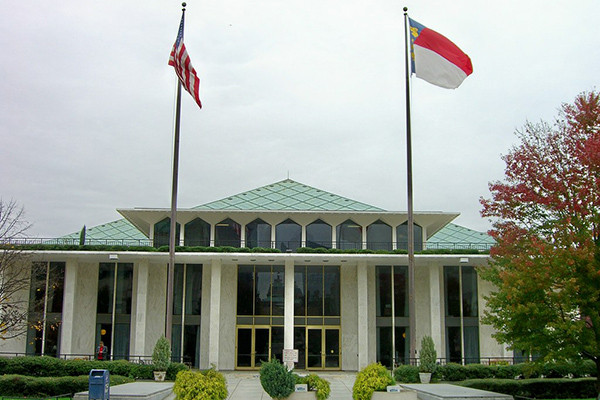The Republican led North Carolina Senate sent a message to Gov. Roy Cooper earlier this week when it voted to approve the proposed North Carolina budget for 2019-2020 and 2020-2021.
Cooper, no doubt got the message, but it appeared that the mainstream media missed it or at least didn’t choose to publicize it. The Senate budget passed on a 30-16 vote and that’s over 66 percent. In North Carolina 60 percent, of those present and voting, is needed to override the governor’s veto. So the state Senate Republicans and Democrats alike sent Cooper the message that whether he vetoed the budget or not the Senate had the votes to pass it.
The House passed its budget on a 61-51 vote which means the Republicans would have to pick up about seven votes to override Cooper’s veto. But there are actually two ways for the Republicans to override the veto. One is to get Democrats to switch their votes, the other is to get Democrats to not vote at all. Since the percentage is of those present and voting, Democrats who support the budget, but don’t want it on the record that they voted for it, can lower the number of votes needed to reach that 60 percent, by not showing up for the vote. It’s a common tactic used on close votes.
Cooper has said he would veto the budget if it did not include Medicaid expansion and neither the House version or the Senate version of the budget includes Medicaid expansion.
A great example of exactly what happened in the Senate, is the fact that Democratic Sen. Gladys Robinson from Greensboro voted in favor of the budget. She said she voted in favor because the proposed Senate Budget included not only $1 million for tornado relief for East Greensboro, but also about $9 million in additional funding for NC A&T State University.
The $1 million for tornado relief is on the Greensboro City Council’s legislative agenda which is a list of items the City Council would like to get passed.
The state budget is about $24 billion, so $10 million is not going to have much impact on the budget, but it would have a major impact for the people of East Greensboro and for the continued success of A&T.
Democratic state Sen. Michael Garrett who also represents parts of Greensboro saw things differently and voted against the Senate budget.
The House, as expected rejected the Senate version of the budget and now House and Senate leaders are negotiating a budget that can pass both chambers. But since Cooper will almost certainly veto the budget, they also have to be concerned about crafting a budget that will not only pass the House and Senate, but can pick up enough Democratic votes to override the governor’s veto.
If the budget is vetoed and the legislature can’t come up with the votes to override the veto, the current spending levels stay in effect until a budget is passed. And that means that state employees, including teachers wouldn’t get the raises in the proposed budget, East Greensboro wouldn’t get the $1 million and A&T wouldn’t get the $9 million. Since there are a lot of state employees and all 100 counties in the state likely have some funding in the budget that is important to them, there is going to be quite a bit of pressure for the Republicans and Democrats including the governor to devise something that nobody likes, but everyone can live with.


The governor is a hack…He has yet to sign a single budget or budget amendment into law since he has been in office. It seems that both chambers reject medicaid expansion so he will, most assuredly, veto whatever they agree upon.